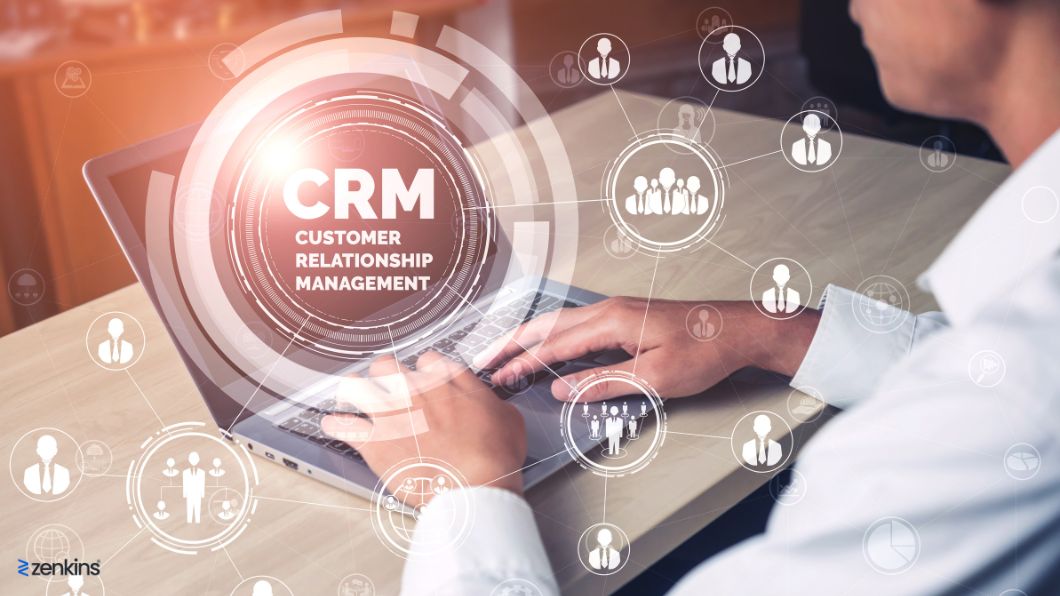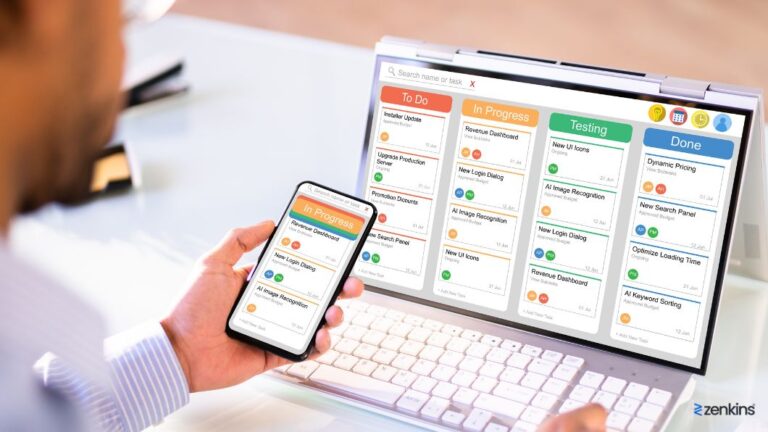Customer Relationship Management (CRM) Software: A Case Study
Table of Contents
Customer Relationship Management (CRM) software has revolutionized the way businesses manage and nurture their relationships with customers. In today’s highly competitive market, maintaining strong customer relationships is crucial for success. CRM software provides organizations with a comprehensive solution to effectively manage customer interactions, streamline processes, and drive growth.
Introduction to Customer Relationship Management Software
Definition and Overview of Customer Relationship Management Software
Customer Relationship Management software is like your personal assistant for managing and nurturing relationships with your customers. It helps businesses track and organize customer data, streamline communication, and improve customer interactions. Think of it as a digital Rolodex combined with a supercharged to-do list.
Importance of Customer Relationship Management Software in Today’s Business Environment
In today’s fast-paced and hyper-competitive business landscape, building and maintaining strong customer relationships is crucial. Customer Relationship Management Software provides a centralized hub for storing and accessing customer information, ensuring that no interaction slips through the cracks. It helps businesses personalize their approach, anticipate customer needs, and ultimately increase customer loyalty and satisfaction. Plus, it helps streamline internal processes, boosting efficiency and productivity.
Benefits of Implementing CRM Software
Enhanced Customer Data Management
Say goodbye to the days of sticky notes and scattered spreadsheets. Customer Relationship Management Software provides a secure and organized space to store key customer details, interactions, and preferences. This wealth of information helps businesses understand their customers better, tailor their offerings, and deliver personalized experiences. It’s like having a photographic memory for all your customer interactions.
Improved Customer Service and Satisfaction
Customer Relationship Management Software enables businesses to provide top-notch customer service by ensuring that no customer request or inquiry falls through the cracks. With quick access to customer history and preferences, businesses can deliver more personalized and relevant solutions. It’s like having a customer service superhero on speed dial.
Streamlined Sales and Marketing Processes
Customer Relationship Management Software acts as a collaborative platform for sales and marketing teams, streamlining their workflows and improving communication. It helps track leads, manage pipelines, and automate follow-ups, ensuring that no sales opportunity gets left behind. It’s like having a Swiss army knife for your sales and marketing efforts.
About the Client
Our client, a sales-centric organization, faced challenges in managing customer interactions effectively. With a growing customer base, they recognized the need for a solution to centralize customer data, automate lead management, and enhance communication with clients. To address these challenges, they embarked on the development of a tailored .NET-based Customer Relationship Management Software.
Project Overview
The project aimed to develop a comprehensive Customer Relationship Management Software solution to centralize customer data, automate lead management, and improve communication with clients. The primary objectives included seamless integration with email and communication tools, automation of lead tracking, and the incorporation of analytics for a better understanding of customer behavior and preferences.
The Challenges
- Disparate Customer Data: Customer data was scattered across various platforms, making it challenging to have a unified view.
- Manual Lead Tracking: Manual processes for lead tracking were time-consuming and prone to errors.
- Limited Communication Tools: The absence of integrated communication tools hindered effective interaction with clients.
The Solution
Our team of skilled developers and project managers collaborated to design and implement a comprehensive .NET-based Customer Relationship Management Software. The solution included modules for centralizing customer data, integrating with email and communication tools, automating lead tracking, and incorporating analytics for a more profound understanding of customer behavior.
Key Features of the CRM Software
- Centralized Customer Data: The CRM centralized customer data, providing a unified view across the organization.
- Integration with Communication Tools: Seamless integration with email and communication tools enhanced client interaction.
- Lead Tracking Automation: Automated lead tracking streamlined the lead management process, reducing errors and accelerating response times.
- Analytics for Customer Insights: Robust analytics tools provided insights into customer behavior and preferences, enabling more personalized interactions.
The Outcome
The Customer Relationship Management Software was successfully deployed, resulting in significant improvements in customer interaction and lead management. Centralized customer data, seamless communication, and analytics contributed to a more customer-centric approach and enhanced sales processes.
Conclusion
Our team’s expertise in developing a tailored Customer Relationship Management Software using .NET technologies effectively addressed the client’s challenges. The implementation of centralized customer data, communication tools integration, and analytics tools contributed to a more efficient and customer-focused sales organization.
In conclusion, the implementation of Customer Relationship Management Software has proven to be a game-changer for businesses aiming to cultivate and strengthen their customer relationships. By harnessing the power of CRM software, organizations can effectively manage customer data, enhance customer service and satisfaction, streamline sales and marketing processes, and ultimately drive growth and revenue. The case study discussed in this article serves as a testament to the transformative impact of CRM software on a company’s operations and success. As businesses navigate the ever-evolving landscape of customer relationship management, embracing CRM software and its associated best practices will undoubtedly play a crucial role in achieving long-term success and sustainability.
FAQ
1. What is Customer Relationship Management (CRM) software?
CRM software is a technological solution that helps businesses effectively manage and strengthen their relationships with customers. It provides tools and functionalities for capturing, storing, and analyzing customer data, facilitating communication and collaboration, and streamlining sales, marketing, and customer service processes.
2. How can CRM software benefit my business?
Implementing CRM software can bring numerous benefits to your business. It enables you to have a centralized and comprehensive view of customer data, enhancing your understanding of customer needs and preferences. This, in turn, allows you to provide personalized and targeted experiences, leading to improved customer satisfaction and loyalty. CRM software also helps streamline operations, automate repetitive tasks, and improve collaboration between teams, ultimately driving efficiency and productivity.
3. How do I select the right CRM software for my company?
Selecting the right CRM software involves careful consideration of various factors. It is important to evaluate your specific business needs and goals, assess the scalability and flexibility of the software, and consider factors such as ease of use, integration capabilities, and pricing. It is recommended to involve key stakeholders, conduct thorough research, and even consider trial periods or demos to ensure the chosen CRM software aligns with your company’s requirements.
4. What are some best practices for implementing CRM software?
Successful implementation of CRM software requires proper planning and execution. Some best practices include clearly defining your objectives and goals, ensuring strong leadership and stakeholder involvement, providing adequate training and support to users, and continuously monitoring and evaluating the system’s performance. It is also important to regularly update and optimize your CRM software to align with evolving business needs and technological advancements.




